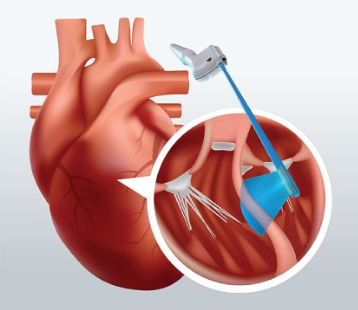Fujifilm Launches Transducer for On-Pump Intracardiac Echocardiography Imaging
Images

FUJIFILM Healthcare Americas Corporation announced the launch of its OPIE Transducer for on-pump intracardiac echocardiography (OPIE) for septal myectomy. Early clinical users of the OPIE transducer will discuss how the technology helps to evaluate the ventricular septal thickness during septal myectomy surgery by providing real-time imaging visualization during the 104th American Association for Thoracic Surgery (AATS) meeting held April 27-30 in Toronto, ON, Canada.
Traditionally, a cardiothoracic surgeon uses transesophageal echocardiography (TEE) before performing septal myectomy. Currently, TEE cannot be leveraged during cardiac bypass surgery. Instead, a surgeon views the patient’s septal thickness via TEE prior to performing open-heart surgery and would trim the septum – if necessary – without real-time guidance. However, with OPIE, a thin transducer is passed into the heart during the myectomy where images of the patient’s septal thickness can be seen in real-time.
A study featuring Fujifilm’s OPIE Transducer highlights that the system provides established imaging to aid in septal myectomy procedures compared to TEE and transthoracic echocardiogram (TTE). Real-time measurements of the interventricular septal thickness are crucial during septal myectomy to avoid creating a ventricular septal defect while resecting enough myocardium. The OPIE transducer is compatible with Fujifilm’s premium ultrasound system, the ARIETTA Precision.
“During septal myectomy, it is critical to correctly measure the patient’s septal thickness because it can directly impact the patient’s care pathway,” said Hideyuki Honda, vice president, ultrasound solutions, FUJIFILM Healthcare Americas Corporation. “Every day we pride ourselves on delivering what we believe is the highest quality ultrasound solutions, arming cardiologists and cardiothoracic surgeons alike with the visualization they need to eliminate guess work in the operating room. Early clinical results of our OPIE Transducer during a high-risk procedure like cardiac bypass surgery are impressive, and we’re proud that the technology is proving to provide high-quality, real-time feedback for the surgeon.”